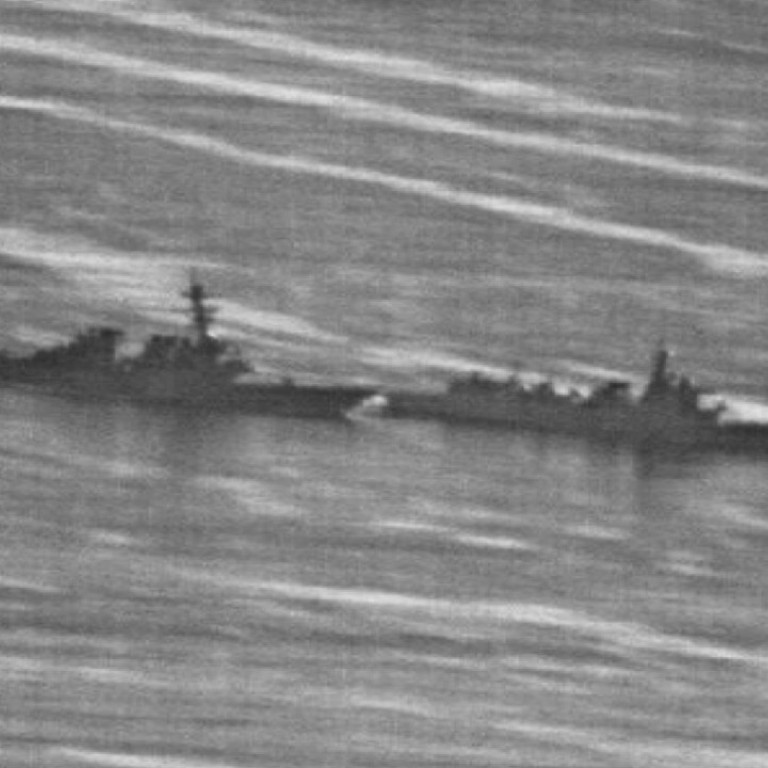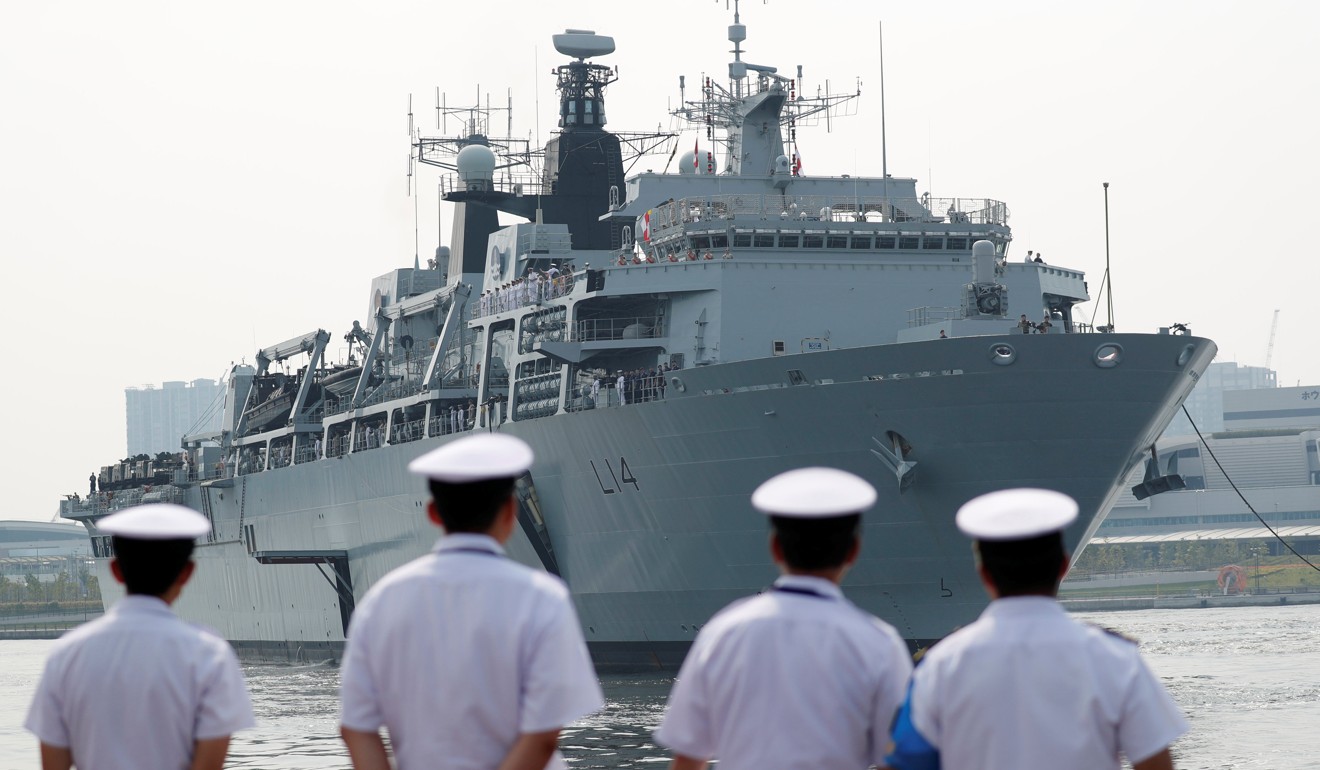
America’s message: time to pick sides in the South China Sea
After years of delicately balancing relations with two superpowers, a close encounter between two warships leaves China’s smaller neighbours facing a choice between the devil and the deep blue sea
In such a scenario, China’s neighbours, from Vietnam to Malaysia and Singapore, may be cajoled into taking sides after years of delicately balancing their relationships with both superpowers.
Sino-US watchers say immediate pressure could come in the form of the US expecting a firmer stance from these countries against China’s disputed claims over wide swathes of the South China Sea – the way its traditional Western allies such as France, Britain and Australia have done.
That would further ratchet up tensions already threatening to boil over as a result of US and British manoeuvres in the waters.
CNN this week reported that the Pentagon is planning for the Pacific Fleet to carry out a series of exercises in November in a “global show of force” – a move likely to further increase the temperature.
Apart from the South China Sea, Washington has long frowned on Beijing’s claim over the Senkaku or Diaoyu Islands near Japan as well as its increasingly assertive stance on Taiwan, the self-ruling island Beijing considers a renegade province.
Ryan Hass, a China observer at Washington’s Brookings Institution, wrote in a commentary immediately after Pence’s speech that at least part of the address was aimed at rallying “international support behind American efforts to confront China”.
The vice-president’s 40-minute speech delved into an extensive array of American complaints about China – including purported “malign” efforts by Beijing to undermine Trump, its treatment of Uygur Muslims, its constraints on academic freedom, intellectual property theft and the Asian power’s “military aggression”.
China scores with Asean play as Trump’s America loses its way in South China Sea
With a cloud hanging over Trump from allegations that his campaign colluded with the Russians, Pence sought to paint Beijing as Washington’s main strategic rival.
He said: “As a senior career member of our intelligence community told me just this week, what the Russians are doing pales in comparison to what China is doing across this country.”
Chinese foreign ministry spokeswoman Hua Chunying said after the speech that Pence had spoken based on “hearsay evidence, confusing right and wrong and creating something out of thin air”.
In Washington, foreign policy wonks across the political spectrum welcomed the speech. “The overriding message was that the United States is strong and determined, China is a significant threat and countries should position themselves with the United States,” Hass wrote.
The Singapore-based diplomatic observer Ian Storey said the South China Sea – under intense scrutiny days before the speech because of a near-miss encounter between the US and Chinese navies – could well be the main arena of confrontation between the powers if tensions do not ebb.
The incident last Sunday just off Given and Johnson reefs – part of the Spratly Islands claimed by China – saw the Chinese navy vessel Lanzhou force the USS Decatur to take evasive action to avoid a collision.
The Chinese warship came within 40 metres of the American vessel to ward it off what Beijing claims is its sovereign territory, while the US warship was conducting what the Pentagon terms a “freedom of navigation” operation [FONOP] through the waters.
What’s behind Beijing’s South China Sea moves?
The US is not a claimant in the territorial dispute, but opposes Beijing’s militarisation and island building in the waterway through which some US$5 trillion worth of goods passes annually.
Since 2015, American warships have conducted intermittent FONOPs in the disputed parts of the South China Sea to signal that Washington views the area as international waters, and not the sovereign territory of any of the claimants.
The vessels typically sail well within 12 nautical miles of geographic features in the waters that are claimed by China, the maximum boundary of territorial waters as stipulated by the United Nations Convention on the Law of the Sea.
Pence said in his speech the incident on Sunday would not affect American operations, declaring that the US navy “will not be intimidated; we will not stand down”.
Other analysts say the likelihood of the sea becoming the main theatre of Sino-US tension rises as Washington galvanises allies and friendly countries to do more to challenge Beijing in the waters – in particular, by conducting FONOPs.
So far, stalwart ally Britain has heeded that call, with the Royal Navy warship HMS Albion conducting a FONOP in the waters in August.

Beijing immediately protested, accusing the British of infringing on Chinese sovereignty.
Australia-based foreign policy observer Aaron Connelly said countries that do heed the US call may face reprisals.
Said Connelly of the Lowy Institute: “Chinese diplomats and visiting officials have been telling their Australian counterparts for two years now that if they conduct a FONOP in the South China Sea, there will be consequences for the bilateral relationship, so we have known for some time that allied FONOPs have been on their radar.”
He said Beijing probably viewed non-US FONOPs as bolstering the credibility “of the underlying protests of Beijing’s excessive claims in the South China Sea, while the American FONOPs can be more easily dismissed as merely a symptom of great power competition”.
Gregory Poling, head of the Asia Maritime Transparency Initiative, said the intervention of “outside parties” – Britain in particular – was probably the reason behind China’s “so harsh” and “so reckless” reaction to the USS Decatur’s FONOP.
The big questions in the meantime are whether and how soon regional players will be pulled into the geostrategic dance that so far has been confined to major powers.
Bill Hayton, a prominent British expert on the South China Sea, said the “surprising thing” about Pence’s speech was that it lacked firm details on what the US expected of its “allies, partners and friends” in its heightened strategic contest with China.
Snubbed in world’s biggest war game, will Beijing make waves in South China Sea?
Said Hayton: “Frankly, I think most Asian countries will like the sound of that. What’s not to like?”
Zhu Feng, executive director of the China Centre for Collaborative Studies of the South China Sea at Nanjing University, dismissed the prospect of cold war-esque tensions and said the current “wrestling” was merely posturing.
“China is showing its determination to safeguard gains from reclamation and reconstruction, and the US wants to signal this expanded presence is unacceptable,” he said.
“But a sea battle for both in the future? I don’t think so.” ■

